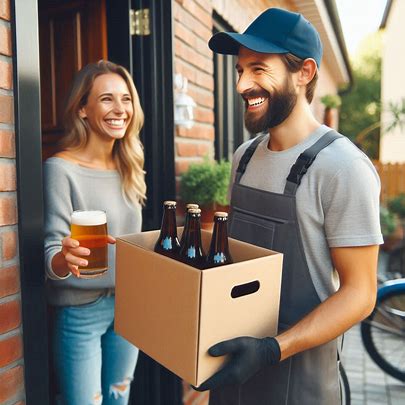Online liquor sales have surged by over 30% annually since 2020. This boom reshapes how consumers shop for alcohol. It challenges traditional retailers. It prompts governments to rethink regulations. Convenience drives this shift, but the implications run deeper. Let’s explore why this trend is accelerating and what it means for the industry.
The Rise of Digital Booze
E-commerce has transformed retail, and alcohol is no exception. The pandemic accelerated this shift. Lockdowns forced consumers to explore digital options. Even post-pandemic, the habit stuck. Data shows that 40% of U.S. alcohol buyers now purchase online at least monthly. Millennials and Gen Z lead the charge. They value speed and variety. Online platforms cater to these demands with user-friendly interfaces and curated recommendations.
However, it’s not just about convenience. Online retailers often undercut brick-and-mortar prices. Without physical storefronts, they save on overhead. These savings pass to consumers. Smaller brands also benefit. They can reach wider audiences without relying on traditional distribution. Craft distilleries and boutique wineries thrive in this space. The result? A more diverse market.
Traditional Retailers Feel the Pinch
Local liquor stores face tough competition. Many struggle to match online prices. Foot traffic has declined as consumers opt for delivery. Some retailers adapt by launching their own e-commerce platforms. Others partner with delivery services like Drizly or Instacart. Yet, not all can keep up. Smaller stores, especially in rural areas, risk closing. This shift threatens jobs and local economies.
Still, physical stores have advantages. They offer immediate purchases and personal service. Some consumers prefer browsing shelves or seeking expert advice. To survive, retailers must innovate. Hosting tastings, offering exclusive products, or creating loyalty programs can draw customers back. The challenge is clear: adapt or fade.
Government Regulations Lag Behind
Alcohol sales are tightly regulated. Rules vary by state and country. Online sales complicate things. Shipping laws, age verification, and taxes create headaches for e-commerce platforms. Some states ban direct-to-consumer alcohol shipments. Others impose strict licensing requirements. These patchwork regulations slow growth and confuse consumers.
Governments face pressure to modernize. Lawmakers must balance public safety with economic opportunity. Age verification technology has improved, easing some concerns. Blockchain and digital IDs could streamline compliance. But change is slow. Until regulations catch up, online retailers navigate a complex web of rules. Consumers may face delays or limited options depending on their location.
Consumer Convenience Wins
Why do shoppers love online liquor stores? Convenience tops the list. Imagine ordering a bottle of bourbon at midnight. It arrives the next day. Subscription services add another layer. Companies like Flaviar deliver curated selections monthly. This appeals to adventurers who want to try new flavors. Reviews and ratings guide purchases, reducing the risk of a bad buy.
Sustainability also plays a role. Some platforms emphasize eco-friendly brands or carbon-neutral shipping. Younger consumers, especially, value these efforts. Online shopping feels modern, tailored, and efficient. It’s no wonder sales keep climbing.
READ ALSO: Navigating the E-Commerce Landscape: Unraveling the Web of Government Regulations
What’s Next for Alcohol E-commerce?
The future looks bright for online liquor sales. Technology will drive further growth. Augmented reality could let shoppers “tour” distilleries virtually. AI might recommend bottles based on taste profiles. Meanwhile, traditional retailers will need to pivot. Collaboration with online platforms could be key. Governments, too, must adapt. Clearer regulations would unlock even more potential.
This shift isn’t just about buying booze. It’s about choice, access, and innovation. Consumers win with more options. Small producers gain a bigger stage. The industry evolves. As online liquor sales soar, one thing is clear: the way we shop for alcohol has changed for good.
